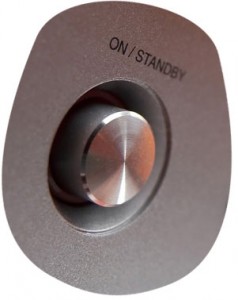 On a world with mostly finite resources and certainly finite space there have to be limits on how much energy, how many resources, we use. Even if energy were to be ‘too cheap to meter’ land is still required for wind-farms, raw materials for turbines and solar panels and other energy harnessing devices. Saving energy may also use resources, such as insulation and draught proofing materials, but generally fewer than they save.
On a world with mostly finite resources and certainly finite space there have to be limits on how much energy, how many resources, we use. Even if energy were to be ‘too cheap to meter’ land is still required for wind-farms, raw materials for turbines and solar panels and other energy harnessing devices. Saving energy may also use resources, such as insulation and draught proofing materials, but generally fewer than they save.
There are hundreds of ways of saving energy and lots of information is available. The National Energy Foundation website is an authoritative source and includes an online Carbon workout – to caluclate you carbon footprint. To find out how much you could save by choosing energy efficient electrical appliance visit Sust-it.net Your local Energy Efficiency Advice Centre can be contacted on 0800 512012 and gives free and impartial advice on cost-effective ways of saving energy or visit the Energy Saving Trust website.
In the UK, always check your home EPC (Energy Performance Certificate) for energy-saving recommendations.
The Green Homes website has been developed by the London Development Agency (LDA) to provide information, advice and active support to help London homeowners make positive low carbon changes to their homes and personal behaviours in order to lower their carbon footprint and reduce impact on the environment. Much of the information about saving energy is relevant to anyone not just Londoners. As well as lots of advice, information and case studies of Londoners, it includes a link to the Green Homes Concierge Service. This is an innovative, personal service to homeowners in London. For a fee their staff will visit your home, calculate energy wastage, and recommend measures to cut your energy consumption, reduce emissions and slash utility bills. They then provide continuing advice and assistance for a whole year.
Here are some things that you can do which won’t cost anything but will save you energy and money.
- Save electricity by turning off lights, computers and other equipment when not in use.
- Turn off the TV and other electrical appliances at the socket – leaving them on standby uses electricity.
- When buying new electrical applicances look for energy efficient models – visit Sust-it.net to find the out annual running costs.
- Only boil as much water as you need – as long as the elements are covered an electric kettle does not have to be filled full.
- If you have a washing machine or dishwasher only use them when you have a full load, or use the half load setting.
- Timer controls can be used to turn appliances on and off, if for example you want some lights on for home security.
- Don’t heat rooms unnecessarily.
- Closing the curtains will keep the heat in.
- It is cheaper to put on a jumper than the heating.
- Use timer controls to turn heating on and off as needed.
- Turning down the thermostat by 1°C will cut heating bills by 10%.
The National Energy Foundation website has an informative guide to central heating controls